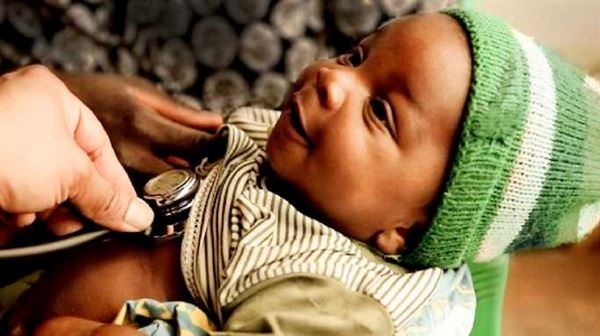Some 1.3 million South Sudanese children under five years old are at risk of suffering from "acute malnutrition" in 2020, UNICEF warned in a report Tu
Some 1.3 million South Sudanese children under five years old are at risk of suffering from “acute malnutrition” in 2020, UNICEF warned in a report Tuesday.
The organization alerted in its new report that the incidence of acute malnutrition among children in the country increased from 13% in 2018 to 16% in 2019, exceeding the emergency threshold of 15%.
“Every child in need of treatment for malnutrition is a failure, a failure in preventing the suffering,” Dr. Mohamed Ag Ayoya, a UNICEF Representative in South Sudan, was quoted in the report.
“Preventing malnutrition is an essential part of realizing every child’s right to health. Young children can suffer lifelong consequences and in worst case die if malnutrition is not addressed timely during the first crucial years in life,” he added.
The report highlighted that only 7% of South Sudanese children aged under five years enjoyed an adequate diet.
The report underlined the link between child malnutrition and suffering common diseases, including malaria, which it said were often “the starting point for malnutrition”.
UNICEF reported that in South Sudan, only 50% of households had access to clean water while 10% had access to improved sanitation.
“Ensuring clean water and addressing poor sanitation and hygiene practices are also essential to preventing diarrheal diseases causing malnutrition,” the organization added
In its report, The State of the World’s Children 2019: Children, food and nutrition, UNICEF found that over 30% of children under five worldwide were either undernourished or overweight, with nearly two in three between six months and two years not fed enough to support growth needs, increasing risk of “poor brain development, weak learning, low immunity, increased infections and, in many cases, death”.
